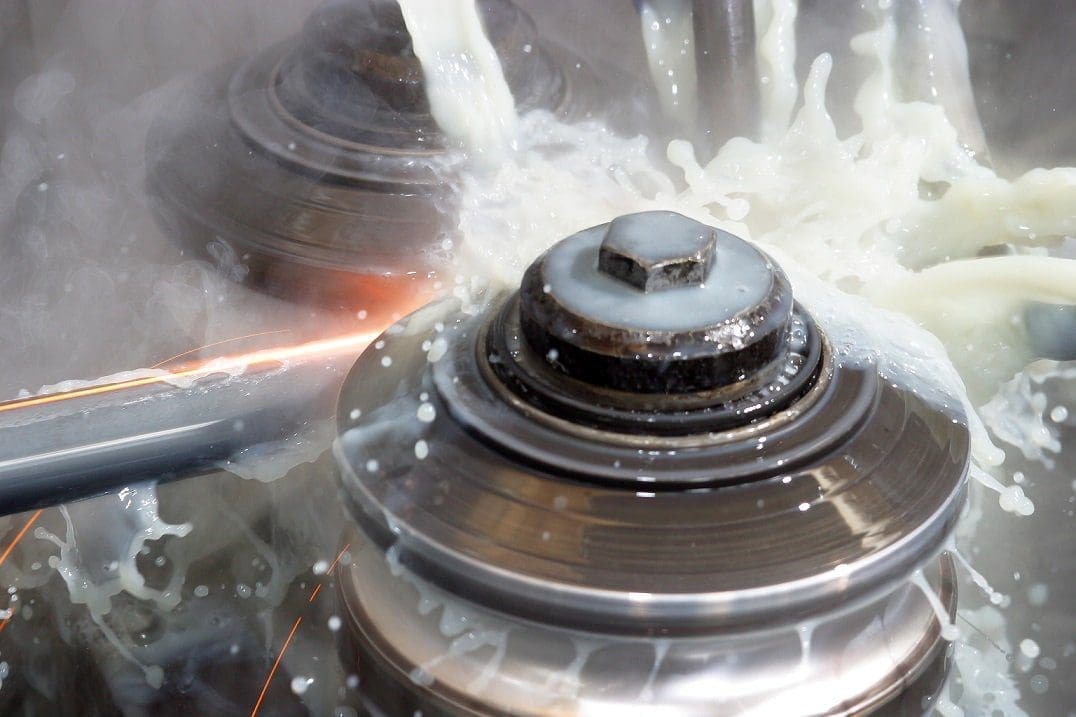 Sustainability and the environment often go hand-in-hand. However, while the environment is a huge part of sustainability, other factors such as efficiency, waste and production are also key metrics that factor into sustainability. Fluids and fluid performance play a key role in all of these factors, and fluid choice is critical to making your shop more sustainable.
Sustainability and the environment often go hand-in-hand. However, while the environment is a huge part of sustainability, other factors such as efficiency, waste and production are also key metrics that factor into sustainability. Fluids and fluid performance play a key role in all of these factors, and fluid choice is critical to making your shop more sustainable.
Here are 5 ways fluids can make your shop more sustainable:

How can spending more on fluids make you and your customer happier? Won’t that increase costs? Sometimes the old adage you have to spend more to make more holds true, especially when it comes to industrial fluids. Here’s one example: Lube-Tech’s Manager of Industrial Product Development Michelle Brakke was part of a group that received a grant from the Department of Defense to evaluate the energy efficiency of grinding fluids. The group chose various fluids, then installed a black box on the tool spindle to measure energy consumption. What they found was that high-quality fluids, as well as better additive packages, resulted in significant energy savings, something that not only affects a shop’s bottom line but helps the environment by using less energy. Some other benefits of using high-quality fluids are longer fluid life in the sump, which means less fluid used and less down time, and higher speeds and higher feeds, all of which equate to a more efficient machine and more efficient production, all benefits that trickle down to your customer.
 The fluids a shop uses may be up to 95% base oil, but that other small percentage, 5-15% of the blend, are additives. They make the fluid “work” by enhancing it with petrochemicals that control wear, oxidation, moisture and myriad other things. Lube-Tech recently certified a concrete form release fluid on the Minnesota Department of Transportation’s approved product list. The fluid uses base fluids and additive packages that meet environmental standards set up by the State of Minnesota. Industrial fluids are moving in this same direction, where at some point they will have to fall into an ever-tightening window of compliance. The easy part is fluid providers have a list of components available to them from which they can blend fluids that meet environmental standards. Lube-Tech used this tool create its form release fluid and also used it to create an entire lineup of car wash chemicals. A bonus is the cost to dispose of these fluids is typically less than a conventional fluid. Additive and base fluid choice will be the key to meeting environmental needs moving forward.
The fluids a shop uses may be up to 95% base oil, but that other small percentage, 5-15% of the blend, are additives. They make the fluid “work” by enhancing it with petrochemicals that control wear, oxidation, moisture and myriad other things. Lube-Tech recently certified a concrete form release fluid on the Minnesota Department of Transportation’s approved product list. The fluid uses base fluids and additive packages that meet environmental standards set up by the State of Minnesota. Industrial fluids are moving in this same direction, where at some point they will have to fall into an ever-tightening window of compliance. The easy part is fluid providers have a list of components available to them from which they can blend fluids that meet environmental standards. Lube-Tech used this tool create its form release fluid and also used it to create an entire lineup of car wash chemicals. A bonus is the cost to dispose of these fluids is typically less than a conventional fluid. Additive and base fluid choice will be the key to meeting environmental needs moving forward.
 Fluids such as vegetable oils, esters, and others not derived from petroleum are considered “renewable fluids.” Vegetables are good for us, and they can be good for your machine too, since vegetable and ester-based fluids can provide improved lubricity over mineral oil options. However, vegetable-based fluid service life may be half that of a petroleum-based fluid. So, is using twice as much fluid sustainable? The good news on this front is there have been a lot of advances in fluid technology and we could see vegetables and esters competing with traditional fluids in fluid life and oxidative stability in the near future.
Fluids such as vegetable oils, esters, and others not derived from petroleum are considered “renewable fluids.” Vegetables are good for us, and they can be good for your machine too, since vegetable and ester-based fluids can provide improved lubricity over mineral oil options. However, vegetable-based fluid service life may be half that of a petroleum-based fluid. So, is using twice as much fluid sustainable? The good news on this front is there have been a lot of advances in fluid technology and we could see vegetables and esters competing with traditional fluids in fluid life and oxidative stability in the near future.
 Maximizing fluid life can enhance both cost savings and efficiency. Lab analysis to determine fluid lifecycle can determine when a fluid needs to be changed from a performance standpoint vs. when the calendar says it needs to be changed. This involves educating machine operators on how to keep fluids clean and the importance of taking regular samples. Proper filtration and new technologies such as rare earth magnets that improve traditional filtration by pulling microparticles out of the fluid help keep fluid clean. Cleaner fluids will also help achieve better surface finishes, minimizing micro abrasions that result from swarf and particulates in the fluid. Of course, quality of fluid figures into this as well, with high-quality fluids typically lasting longer. The result is more run time, less expense and a better product for your customer.
Maximizing fluid life can enhance both cost savings and efficiency. Lab analysis to determine fluid lifecycle can determine when a fluid needs to be changed from a performance standpoint vs. when the calendar says it needs to be changed. This involves educating machine operators on how to keep fluids clean and the importance of taking regular samples. Proper filtration and new technologies such as rare earth magnets that improve traditional filtration by pulling microparticles out of the fluid help keep fluid clean. Cleaner fluids will also help achieve better surface finishes, minimizing micro abrasions that result from swarf and particulates in the fluid. Of course, quality of fluid figures into this as well, with high-quality fluids typically lasting longer. The result is more run time, less expense and a better product for your customer.
 Used petroleum products are not just considered burner fuel anymore. Despite originating from a mixture of base stocks and quality, the re-refining process will often yield a higher quality base fluid, and can even result in a higher quality than fluid than first time use Group I base stock. When it comes to utilizing recycling services, shops have two choices in regard to sustainability – the first is to choose an oil collector that recycles fluids with most up to date technology. Second choice is considering using fluids blended from re-refined base oils. The bottom line is, with the availability of recycling services there is no reason a shop should be considering any other route, especially with the looming threat of EPA fines and, perhaps worse, having your shop end up in the news as an EPA violator.
Used petroleum products are not just considered burner fuel anymore. Despite originating from a mixture of base stocks and quality, the re-refining process will often yield a higher quality base fluid, and can even result in a higher quality than fluid than first time use Group I base stock. When it comes to utilizing recycling services, shops have two choices in regard to sustainability – the first is to choose an oil collector that recycles fluids with most up to date technology. Second choice is considering using fluids blended from re-refined base oils. The bottom line is, with the availability of recycling services there is no reason a shop should be considering any other route, especially with the looming threat of EPA fines and, perhaps worse, having your shop end up in the news as an EPA violator.